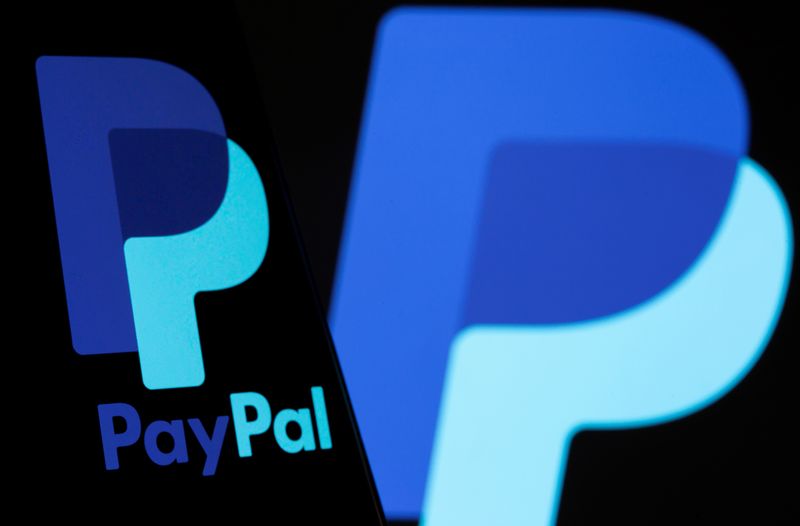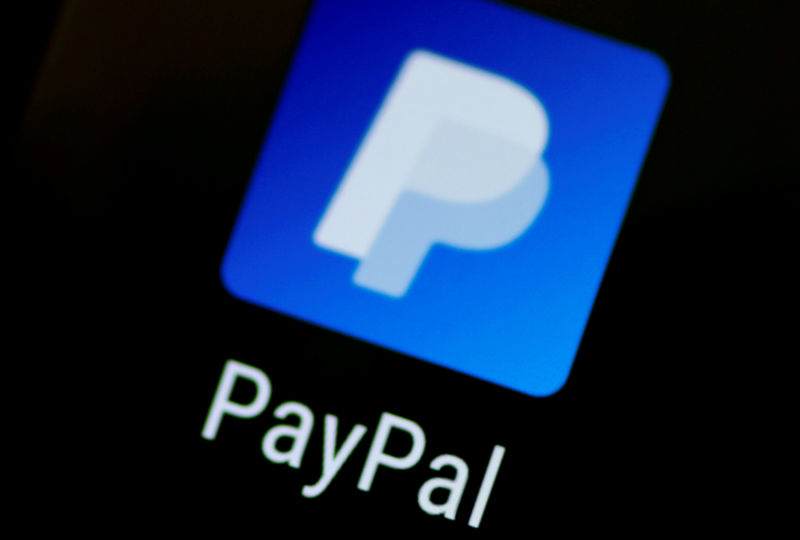By Hannah Lang
(Reuters) -PayPal is expanding into U.S. point-of-sale payments by integrating its debit card with Apple’s (NASDAQ:) mobile wallet and offering 5% cash back rewards, as the global online payments giant seeks direct competition with tech companies and banks.
The bid to capture a share of personal purchasing in shops, cafes and restaurants is part of an ambitious turnaround strategy by new CEO Alex Chriss, who joined the company from Intuitive (NASDAQ:) last year.
Although PayPal (NASDAQ:) has long dominated online payments and peer-to-peer payments through its Venmo app, it hasn’t pushed consumers to use its products in person.
“E-commerce is clearly one of the fastest growing areas where people are spending their dollars… but it’s not everything,” Chriss said. “Now consumers can use PayPal for any purchase, anywhere, anytime.”
The point-of-sale push includes 5% cash back on select products up to $1,000 per month and additional rewards from brands like DoorDash (NASDAQ:) and Sephora.
According to recent data from the US Federal Reserve, the value of US debit card payments has risen in recent years, reaching $4.55 trillion in 2021, up from $2.47 trillion in 2015.
Chriss said consumers are becoming more cost-conscious and are moving towards debit cards, which help them stay within their spending limits.
PayPal also allows customers to use debit cards with Apple Pay, as users take advantage of mobile wallets and tap-to-pay options.
The 5% cashback reward for a category of the user’s choice makes it one of the more competitive debit card cashback products, with only 24% of debit cardholders reporting to earn cashback rewards in 2023, compared to 74% of the credit card holders. This is evident from a report by purchasing reward firm Valuedynamx.
While PayPal has long enjoyed a first-mover advantage, increasing competition from Apple and Google (NASDAQ:) has taken a share of the mobile payments market, according to analysts.
As part of this initiative, the company is making its largest marketing investment ever to promote the use of PayPal personally. PayPal declined to disclose the amount of that investment, but indicated in its quarterly results that marketing and branding campaigns would drive up costs in the second half of the year.

Chriss has called 2024 a “transition year” for PayPal and has pledged to grow revenue beyond transaction-related volume. In January, PayPal launched artificial intelligence-based products and a one-click payment feature.
PayPal’s share price is up more than 17% since the start of the year, but still lags the benchmark’s 22% gain.


